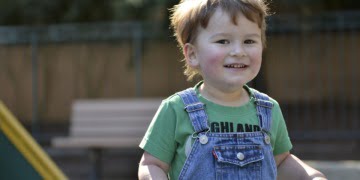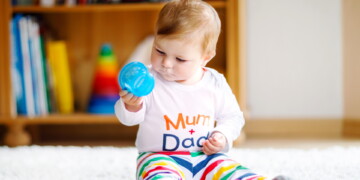Autism Spectrum Disorder (ASD) is a neurodevelopmental condition that affects communication, behavior, and social interactions. Early detection is crucial for providing toddlers with the necessary interventions to help them develop essential skills.
Parents and caregivers play a significant role in identifying early warning signs, as they are often the first to notice differences in their child’s behavior and development.
If you suspect your child may be showing signs of autism, this comprehensive checklist can serve as a guide to recognize early indicators.
However, it is important to consult a healthcare professional for an official diagnosis, as autism is a complex condition that manifests differently in every child.
Understanding Autism in Toddlers
Autism is a spectrum disorder, which means that symptoms and severity can vary widely.
Some toddlers may exhibit noticeable signs as early as 12 to 18 months, while others may develop more gradually.
While no single behavior confirms autism, a combination of the following early signs may warrant further evaluation by a pediatrician or developmental specialist.
Identifying these signs early can lead to earlier interventions, which are crucial in helping children with autism reach their full potential.
Children with autism may struggle with social interactions, communication, and repetitive behaviors.
While some children may exhibit only mild symptoms, others may require more intensive support.
The key to early identification is paying close attention to developmental milestones and noticing when certain skills are delayed or absent.
Checklist of Early Signs of Autism in Toddlers
Social Interaction Difficulties
Limited Eye Contact: The child avoids or has minimal eye contact when engaging with others. Eye contact is a fundamental part of social engagement, and a lack of it can indicate difficulties in connecting with others.
Lack of Social Smiling: Does not smile in response to interactions or social engagement. Babies typically start to smile at caregivers around six weeks of age, and a lack of reciprocal smiling may be a concern.
Limited Interest in People: Prefers to play alone and shows little interest in interacting with caregivers or other children. Social withdrawal is a common early sign of autism.
No Response to Name: Does not turn or respond when their name is called by 12 months, which can indicate communication challenges.
Limited Imitation of Actions: Does not copy gestures, facial expressions, or movements such as clapping or waving, which are essential for learning social behaviors.
Poor Joint Attention: Difficulty following another person’s gaze or pointing to objects of interest, which is an early indicator of social communication deficits.
Lack of Comfort-Seeking Behavior: Does not seek comfort when upset or express affection in typical ways, such as hugging or reaching for a parent.
Communication and Language Delays
Delayed Speech Development: By 16 months, the toddler has not spoken a single word or has very few words. By age two, they may not be forming simple two-word phrases.
Limited Babbling: By 12 months, does not babble or use sounds meaningfully. Babbling is an important precursor to language development.
Echolalia: Repeats words or phrases without understanding their meaning. This can be a sign of difficulty with expressive language.
Lack of Gestures: Does not use gestures like pointing, waving, or nodding, which are critical for non-verbal communication.
Difficulty Understanding Language: Struggles to comprehend simple instructions or commands, leading to challenges in daily interactions.
Monotone or Unusual Speech Patterns: If the child does speak, they may have an unusual tone, rhythm, or pitch, such as a sing-song voice or robotic tone.
Repetitive Behaviors and Restricted Interests
Repetitive Movements: Engages in hand-flapping, rocking, spinning, or finger-flicking, which are self-stimulatory behaviors that help regulate sensory input.
Fixation on Objects: Shows an unusual attachment to specific objects, such as a toy or household item, and becomes upset if removed. This may include an intense interest in certain topics or objects.
Rigidity in Routines: Insists on following the same routines and struggles with change, becoming distressed when daily routines are altered.
Unusual Play Patterns: Prefers to line up toys rather than engage in imaginative play. Symbolic play, such as pretending a block is a car, is often absent in autistic children.
Sensory Sensitivities: Overreacts or underreacts to sounds, textures, lights, or smells, which may lead to sensory-seeking or sensory-avoidant behaviors.
Self-Stimulatory Behavior: Engages in behaviors such as staring at spinning objects or flickering lights for extended periods, which may be soothing or self-regulating.
Sensory and Motor Differences
Unusual Reactions to Sensory Input: Extremely sensitive to noise, light, or textures, or appears unresponsive to pain. Some children may seek out certain sensations, such as deep pressure.
Unusual Eating Habits: Shows strong preferences or aversions to certain food textures and flavors, leading to restricted diets.
Irregular Sleep Patterns: Struggles with falling asleep or staying asleep, which can impact overall health and behavior.
Delayed Motor Skills: Shows delayed development in crawling, walking, or fine motor skills like holding a spoon, which can indicate coordination difficulties.
When to Seek Professional Help
If you notice several of these signs in your toddler, it is advisable to consult a pediatrician or child development specialist.
Early intervention services, such as speech therapy, occupational therapy, and behavioral interventions, can significantly improve outcomes for children with autism.
Professionals can guide you through available resources and support systems tailored to your child’s needs.
Diagnosis and Next Steps
A healthcare professional will assess the child using standardized screening tools, such as the Modified Checklist for Autism in Toddlers (M-CHAT). A comprehensive evaluation may involve:
Parent Interviews: Gathering developmental history and observations from caregivers.
Behavioral Observations: Assessing social, communication, and behavioral patterns.
Hearing and Vision Tests: To rule out other potential causes of developmental delays.
If a diagnosis is confirmed, early intervention programs, including Applied Behavior Analysis (ABA), speech therapy, and occupational therapy, can help toddlers improve communication, social skills, and daily functioning.
Conclusion
Recognizing the early signs of autism in toddlers is essential for early intervention and support.
If you suspect your child may be exhibiting these symptoms, seeking a professional evaluation can provide clarity and access to valuable resources.
Remember, every child develops at their own pace, and an early diagnosis does not define a child’s future. With the right support, children with autism can thrive and reach their full potential.
Parents and caregivers should stay informed, seek support, and advocate for their child’s needs to ensure the best possible outcomes.



























